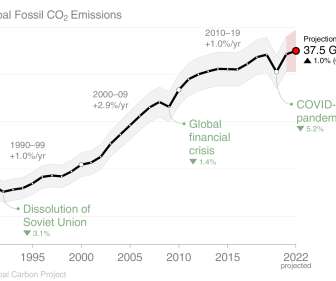EIA: US energy-related CO2 dropped 2.7% in 2015; of end-use sectors, only transportation increased
Green Car Congress
MARCH 27, 2017
According to a report from the US Energy Information Administration (EIA), US energy-related CO 2 emissions decreased by 146 million metric tons (MMmt) in 2015 to 5,259 MMmt, down 2.7% Energy-related CO 2 emissions in 2015 were about 12% below 2005 levels. —“US Energy-Related Carbon Dioxide Emissions, 2015”. Electricity.


























Let's personalize your content